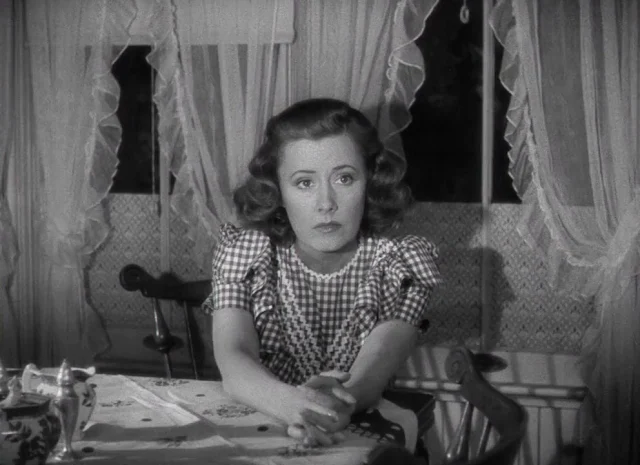
Cast: Chester Morris, Ralph Bellamy, Ann Dvorak, Joan Perry, Melville Cooper, Rose Stradner, John Eldredge, Ann Doran, Marc Lawrence, Stanley Brown, Scotty Beckett, Milburn Stone, Marie Blake. Screenplay: Philip MacDonald, Michael Blankfort, Albert Duffy, based on a play by James Warwick. Cinematography: Lucien Ballard. Art direction: Lionel Banks. Film editing: Otto Meyer. Music: George Parrish.
Blind Alley has a familiar setup: a killer on the run from the cops takes a family hostage in their own home. Chester Morris plays the killer, Hal Wilson, who moves in on the Shelby household, whose head is a college professor and psychiatrist played by Ralph Bellamy. Wilson, it turns out, is a psychopath, plagued by a recurrent dream, and Dr. Shelby sees the opportunity to disarm him by using the tools of psychotherapy. It works, sort of, in a rather too simplistic fashion, as the shrink decodes the symbolism of Wilson's dream as a traumatic event from his childhood that the killer has been repressing. The movie is a little stagy, as any adaptation of a play to screen is likely to be, but it's tidy enough in its storytelling that I didn't mind the obvious curtain lines and creaky attempts to "open out" the action -- for example, by visualizing the contents of Wilson's nightmare. It's nice to see Bellamy playing something other than a stooge for Cary Grant, as he did so memorably in The Awful Truth (Leo McCarey, 1937) and His Girl Friday (Howard Hawks, 1941). Morris is given to chewing the scenery but Ann Dvorak is good as his moll, Mary, who knows how to handle him well enough that Shelby can work his cure. The movie is sometimes cited as one of the first films noir, which only shows how flexible any definition of that genre has to be.
























